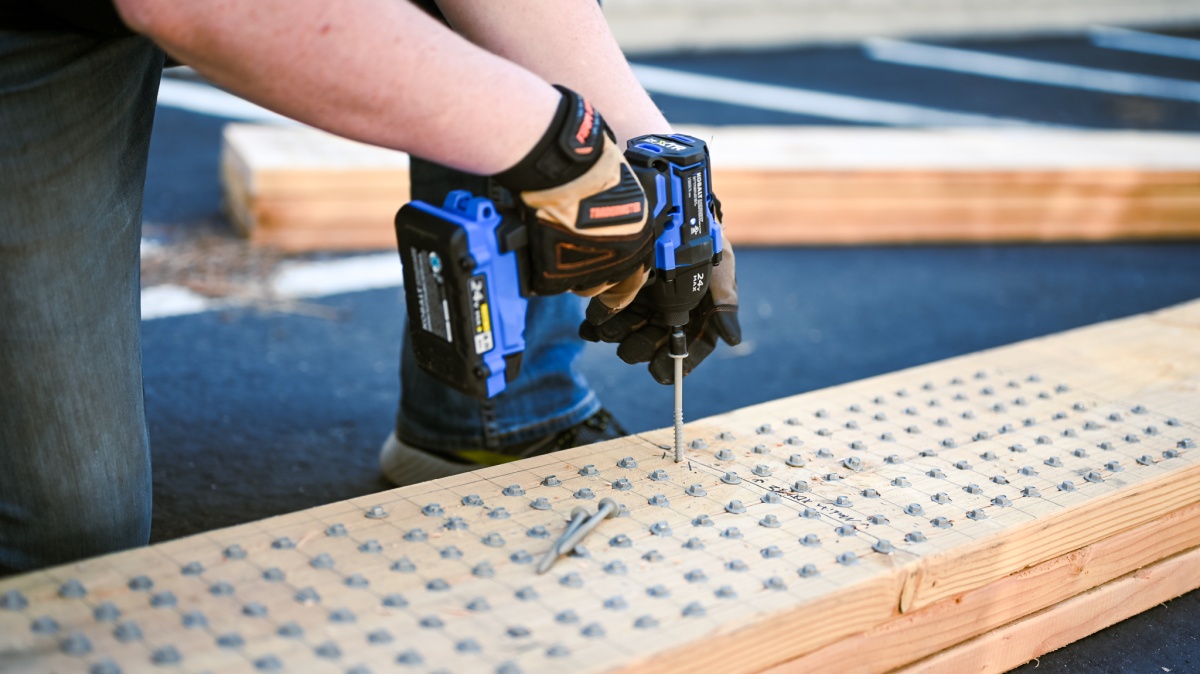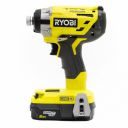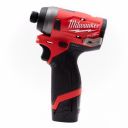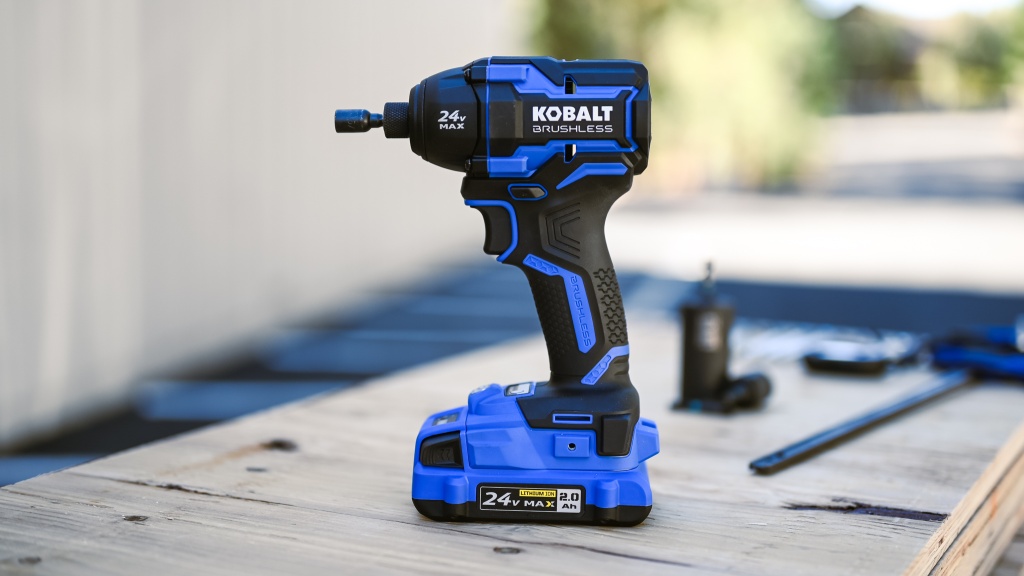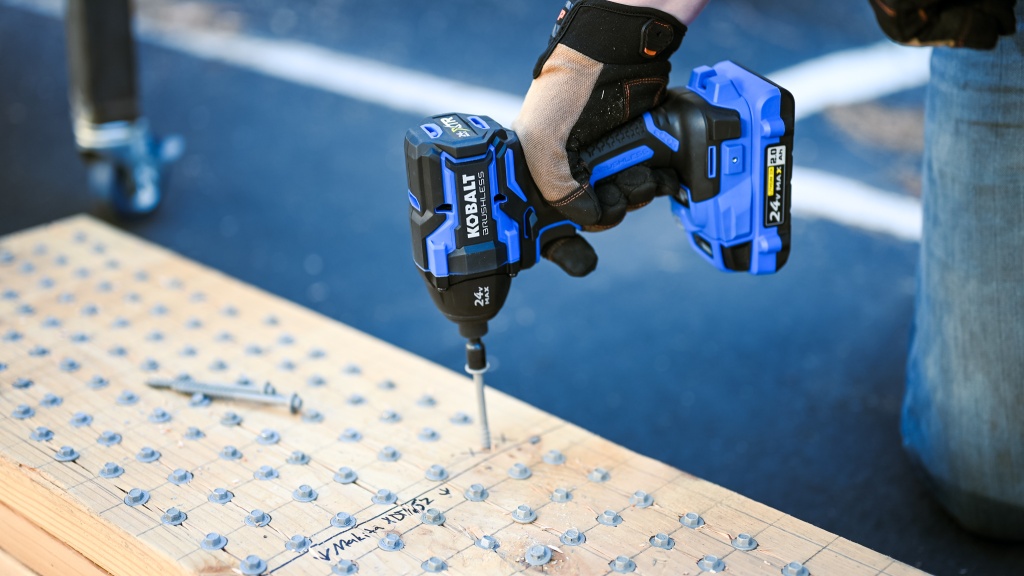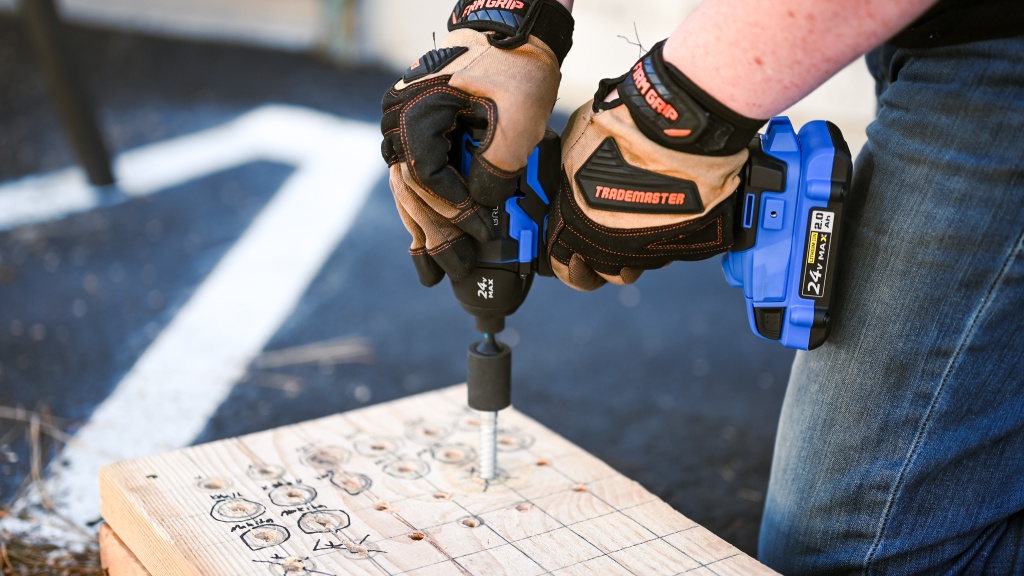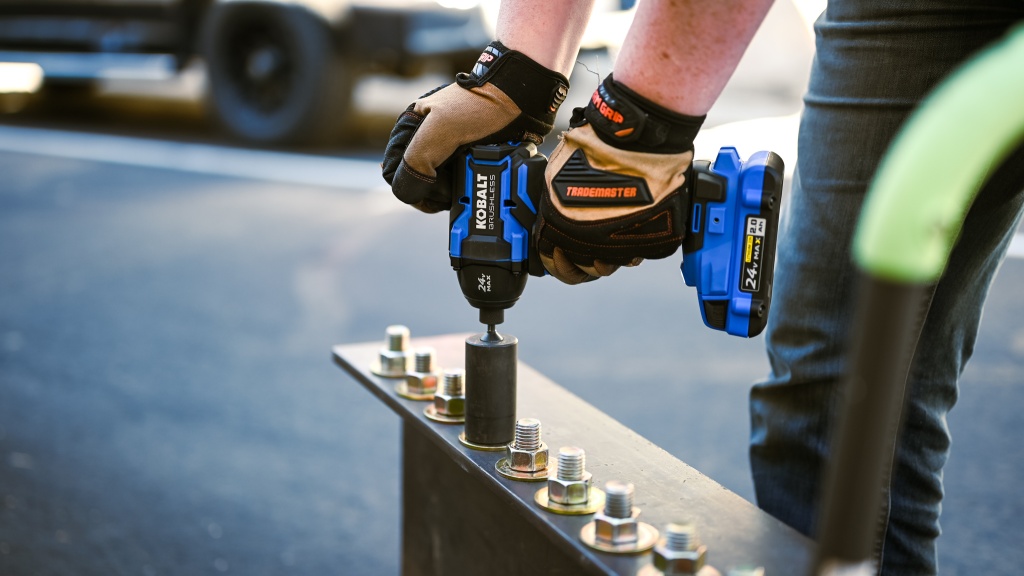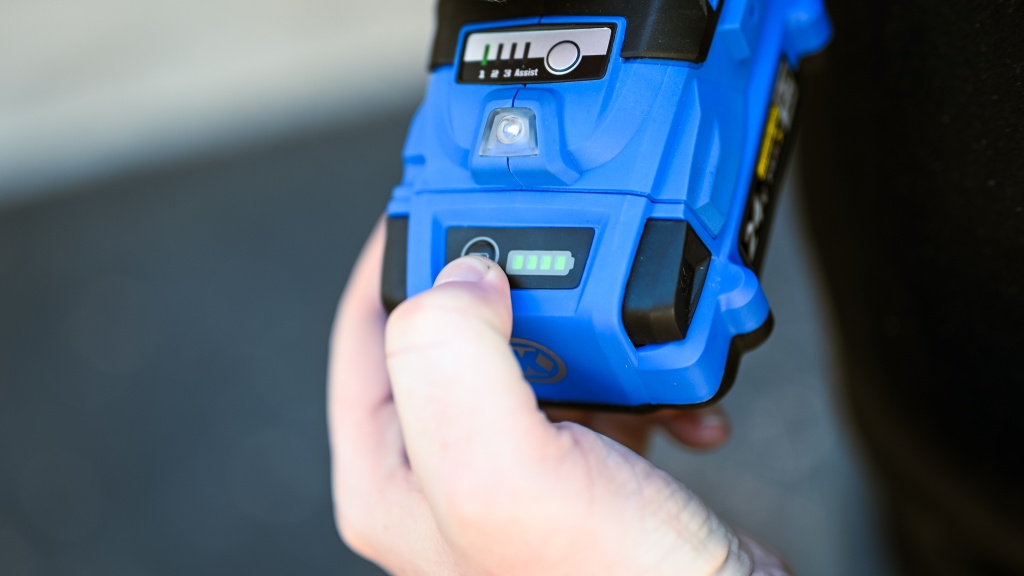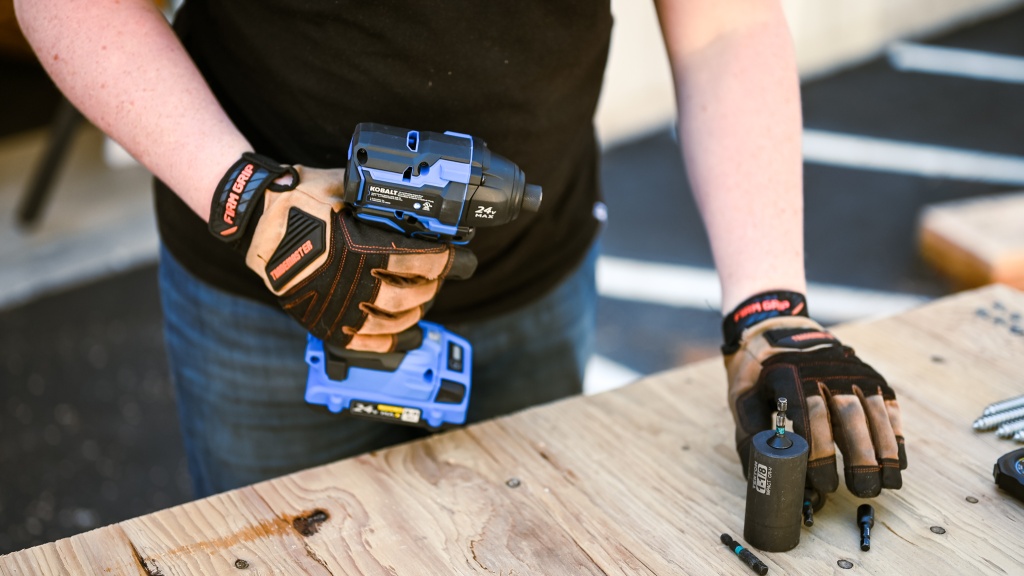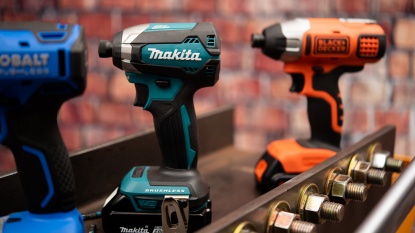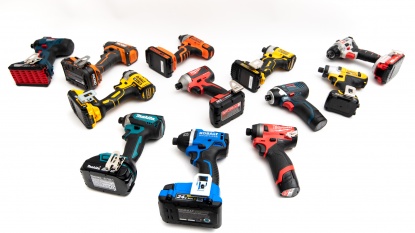Our Verdict
Compare to Similar Products
 This Product
Kobalt XTR Max 24V | |||||
|---|---|---|---|---|---|
| Awards | |||||
| Price | $220 List | $151 List $173.56 at Amazon | $135 List $119.99 at Amazon | $110 List $119.28 at Amazon | $120 List $83.99 at Amazon |
Overall Score  |
|||||
| Star Rating | |||||
| Bottom Line | If you want an ultra-fast and strong impact driver with an efficient battery, this model is the one | This model offers tons of power and speed along with fantastic battery life but isn't quite budget-friendly | This impact driver offers fantastic speed and torque in a compact package | An exceptionally fast and powerful tool that is slightly held back by an average battery | When it comes to 12-volt impact drivers, it's hard to beat the performance of this model |
| Rating Categories | Kobalt XTR Max 24V | Makita XDT16Z Lithi... | Milwaukee M18 Fuel... | Ryobi P238 | Milwaukee M12 Fuel... |
| Speed (35%) | |||||
| Torque (25%) | |||||
| Convenience (20%) | |||||
| Battery (15%) | |||||
| Noise (5%) | |||||
| Specs | Kobalt XTR Max 24V | Makita XDT16Z Lithi... | Milwaukee M18 Fuel... | Ryobi P238 | Milwaukee M12 Fuel... |
| Impact Driver Model # | KXID 124B-03 | XDT16Z | 2853-20 | P238 | 2553-20 |
| Average Measured Fastening Torque | 300 ft-lb | 300 ft-lb | 300 ft-lb | 300 ft-lb | 143 ft-lb |
| Measured Breaking Torque | 300 ft-lb | 300 ft-lb | 300 ft-lb | 300 ft-lb | 275 ft-lb |
| Measured Length | 139 mm | 114 mm | 116 mm | 161 mm | 132 mm |
| Average Measured Sound Pressure Level | 96 dBa | 94 dBa | 99 dBa | 104 dBa | 97 dBa |
| Quick Bit Insert? | No | Yes | Yes | Yes | Yes |
| Bit Holder? | No | No | Yes | Yes | No |
| Multiple Fastening Modes? | Yes | Yes | Yes | Yes | Yes |
Our Analysis and Test Results
After conducting a hands-on, head-to-head analysis of the top impact drivers available today, it was clear that the Kobalt XTR Max 24V is one of the best. This model is capable of driving more screws and tightening more fasteners on one charge than any other driver we've gotten our hands on.
Performance Comparison
Speed
The Kobalt XTR Max 24V is one of the fastest impact drivers we've tested. To test speed, we timed driving 3-⅝" ledger screws into a thick stack of lumber over and over again, then calculated an average. The Kobalt XTR crushed this contest with an average speed of three seconds. A few of its individual trials were under three seconds, and it was the only model to break the three-second barrier.
We then drove a 3" long by ½" wide lag screw into the same 2 x 12 lumber and recorded how long each model took to drive the screw and remove it completely. To drill pilot holes, we employed an 11/32" bit so that the lag screw wouldn't cause the board to split and each screw would have similar resistance.
The Kobalt XTR Max 24V decimated the other models in this discipline. It took the XTR a mere ten seconds to fully drive the screw and an impressive three seconds to remove it. For the entire group, the calculated average was 30 seconds to sink the screw and 12 seconds to remove it.
Torque
If you want to purchase an impact driver, torque is one of the most important elements to consider. The primary benefit that an impact driver offers when compared to a drill is the torque they produce. The Kobalt XTR Max 24V was one of the top models during our tests.
To measure torque, we constructed a testing apparatus by welding ¾" bolts onto a steel beam. Using a torque wrench, we tightened nuts onto the bolts at increasing pressures to see how tight of a nut each model could break loose. The Kobalt XTR Max 24V maxed our torque wrench out by loosening nuts up to 300-foot-pounds of pressure.
We then tightened the nuts back onto the bolts to see how much torque each impact driver could produce. Again, the Kobalt XTR Max 24V maxed this experiment out with a measured torque of 300 foot-pounds.
Convenience
The next portion of our overall score is dedicated to how easy each impact driver is to use. We noted any elements or features that aid in the operation of the tool and anything that may slow you down or make your project more difficult. Convenience is not the strongest suit for the Kobalt XTR Max 24V, but it offers some attractive features.
The Kobalt XTR Max 24V has three speeds to select from and a setting called "ASSIST" mode. This feature feels like it has a slower start than the third-speed setting, but it increases RPMs as you hold the trigger down. This seemingly simple element can greatly reduce the chances of cam-out or cross-threading.
The Kobalt XTR Max 24V's lighting capabilities are one aspect where it fell behind. We found the light to be pretty dim and didn't find that it helped much unless you are using the driver in complete darkness. The light comes from below the handle, which is helpful if you look at the fastener from the right angle; otherwise, it doesn't do much good. We prefer lights that are located around the driver chuck.
An impact driver with a short front-to-back length is often more capable than bulkier models. We find that we are often squeezing between house frame studs, under tables, and in between shelves with our drivers. The Kobalt XTR Max 24V isn't the longest model in our review, but it didn't earn many points for its size.
Many of the newer models have a quick insert, which is a one-way device that allows you to stick a bit into the chuck with one hand. The Kobalt XTR Max 24V is missing this feature. This may not be a deal-breaker for most people, but we feel that it is worth mentioning nonetheless.
Battery
Battery life can truly make or break a great tool. We devised a testing process to effectively beat the heck out of each model and gain objective data for this metric. We began by driving 14 3 ½" ledger screws into a stack of douglas fir 2 x 12 boards, then switched to a 3" x ½" lag bolt, repeating the process until the batteries ran out of juice.
If there is one area where the Kobalt XTR Max 24V truly impressed us, it's with its battery life. While most of the impact drivers in our review struggled to complete three or four sets of our testing gauntlet, the XTR completed seven sets and managed five screws on the eighth round.
Noise
The remaining percentage of our total score is dedicated to the loudness of each impact driver. The bottom line is that none of these devices are even remotely quiet. This device is designed to hammer as it twists — thus creating an ear-piercing sound.
The Kobalt XTR Max 24V isn't the loudest model in our review, but the noise levels are pretty brutal. With an average decibel level of 96, you're certainly going to want some ear protection while operating this tool, and you may want to stay away from those evening garage projects if you have neighbors nearby.
Should You Buy the Kobalt XTR Max 24V?
If you're looking for a lightning-fast, super-powerful impact driver with a long-lasting battery, the Kobalt XTR Max 24V is the one. Its overall performance is enough to impress even the most avid DIYer and aficionado of the best tools. The XTR has a few shortcomings. Mainly, it's lacking a bit in the convenience department as it's a bit bulky and is missing a couple of bells and whistles. If you can get over the fact that you need to use two hands to attach bits and the dim LED, we certainly think this model is a sound investment that will not disappoint.
What Other Impact Drivers Should You Consider?
The main factors to consider while shopping for an impact driver are your budget and the tasks for which you will use the tool. There are many projects where a lighter, less powerful model will make the job easier, such as assembling furniture kits or changing out doorknobs. If this sounds more like what you're looking for, check out a 12-volt version such as the Milwaukee M12 Fuel. If you want a high-performance model that costs a lot less than the XTR, we recommend the Ryobi P238. This model isn't quite on par with the top-tier models, but if you're willing to sacrifice a sliver of performance for a smaller price tag, the P238 is the way to go.


